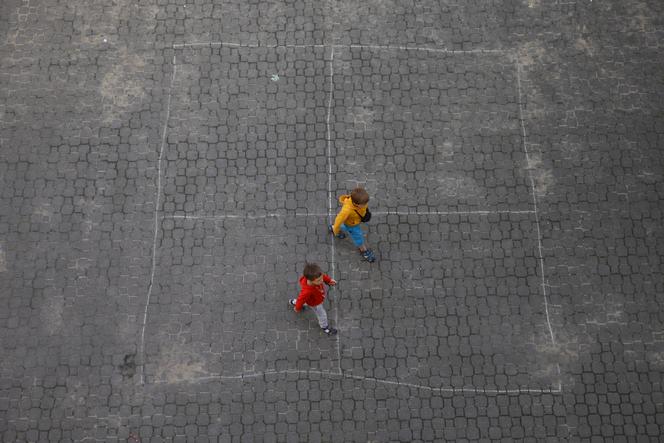
Reminiscent of a vassalized Central Europe where any protest was crushed by sending tanks to Budapest or Prague, the Kremlin has been ravaging Ukraine for the past five months under the guise of "denazification" and negation of the Ukrainian nation, using a strategy of terror that has so far destroyed cities, massacred and raped civilians, and displaced populations.
Between February 24 and June 18, as revealed by the Russian Ministry of Defence, more than 1.9 million Ukrainians, including more than 307,000 children [200,000 according to Ukrainian President Volodymyr Zelensky at the beginning of June], were forcibly transferred to the Russian Federation, without any guarantees or external checks on their living conditions and their future.
This transfer through one-way evacuation corridors, to "filtration camps" and then to areas as remote as Murmansk, Kamchatka or the North Korean border, brings back the specter of deportations carried out by Tsarist Russia and the Soviet Union.
Our greatest concern is for the fate of deported children, especially the most vulnerable: unaccompanied minors and minors in institutions, orphans or not. Before the invasion, more than 2,000 of them were registered in Ukrainian care institutions.
In addition to those, there are an unknown number of children recently orphaned by the Russian invasion and others who have been separated from their parents during their passage through "filtration camps," where the latter are held on suspicion of belonging to the Ukrainian army or part of the resistance. As the investigators appointed by the UN Human Rights Council fear, these minors are all at risk of being adopted by Russian families: Ukrainian rights defender Dmytro Lubinets claimed that, as of July 20, 108 of them from the Donetsk region had already been adopted.
Russia hasn't ratified the 1993 Hague Convention on Protection of Children and Co-operation in Respect of Intercountry Adoption, the only transnational legal framework allowing international adoption procedures. The decrees signed by Vladimir Putin on May 25 and July 11 simplifying the process of obtaining Russian citizenship for Ukrainians – including children – even facilitates their adoption. The text is accompanied by a law, voted on June 7, which authorizes the Russian Federation to no longer apply the decisions of the European Court of Human Rights.
In fact, the Russian Federation doesn't feel compelled to respect international humanitarian law, and rejects its framework. Also, the requests addressed to the Kremlin by the Ukrainian authorities demanding the return of the young deportees, are totally dependent on the goodwill of the invader, who satisfies them only in dribs and drabs: Based on the claims of Ukrainian deputy prime minister, Iryna Verechtchuk, only 23 had returned to Ukraine in June, and 44 at the beginning of July.
You have 71.28% of this article left to read. The rest is for subscribers only.